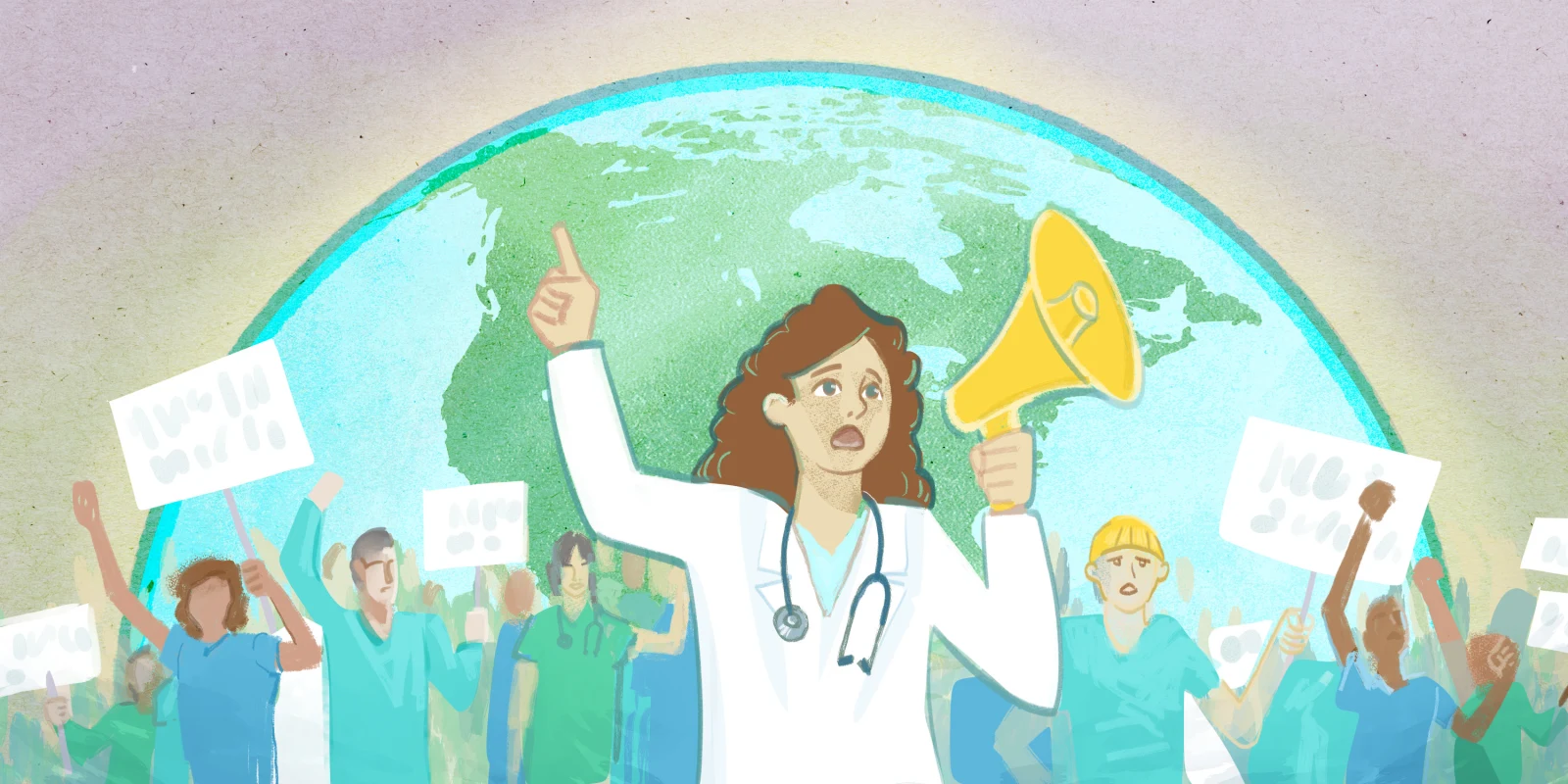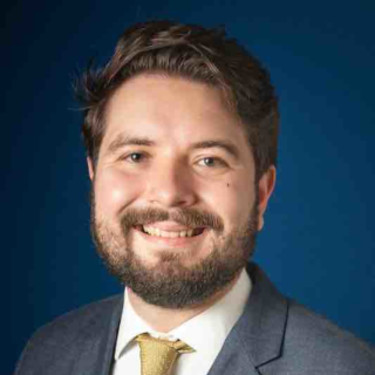What is the role of a physician? To many our role looks like prescribing medications to treat disease. To others it is to perform life-saving surgeries to remove cancers or repair damaged organs. And to still others our role is to be a guide through difficult times by providing knowledge and insight into seemingly impossible health challenges. At the center of it all, though, is a focus on the health of our patients and the trust they place in us. And yet, in this intense focus on the health of individuals, have we forgotten our critical role in protecting the health of our community?
One of the greatest threats we as a population face is the rise of systems that see human health as a trade-off for an alternative gain. For example, the availability of ultra-processed foods has created an extremely profitable way to provide food but is a major contributor to the rise of worldwide obesity. Or more recently, the rise in anti-in-vitro-fertilization activism may drum up support for an upcoming presidential election, but has created real-world uncertainty about a well-established component of reproductive health.
Certainly, this calculus poses a threat that no medications, surgeries, or empathetic counseling can treat. Physicians have a rich history as advocates within our communities. However, to meet these increasingly complex threats we have traded presence in our communities for pre-scheduled meetings with legislators, lobbyists, and special interest groups often in far-away office buildings. While the latter is certainly necessary, reclaiming physician civic engagement within our own communities must be a priority. Below, I highlight several issues facing our patients, and ways that ground-level physician advocacy can affect change from the bottom up.
Physicians at the Grassroots of Climate Change
The progression of man-made climate change is perhaps the greatest public health threat we currently face. Rising global temperatures mean more severe weather, more displacement, and more heat-related illness. Air pollution born of climate change likewise has significant impacts on respiratory health, and has been associated with cardiovascular disease and premature birth. Physician advocacy in this space is already robust, with several groups working at the federal and state levels to curb total CO2 emissions and enact climate mitigation strategies.
Still, climate policy is by necessity a local interest, especially in cities where the effects of air pollution and ambient heat are most significant. For example, in my own community of Chesterfield, Virginia, there is considerable effort to prevent the building of a new natural gas plant next to an elementary school. Physicians in our area are uniquely equipped to speak to the public health effects of these emissions, and to move the needle in the local hearings that control permitting. Additionally, guidance during routine visits such as discussing the risk of heat illness with patients leads to increased public awareness of the urban “heat island” effect and the local efforts needed to mitigate these consequences. These small actions on the part of physicians help to contextualize this worldwide phenomenon in people’s own lives and inspire patients to take their own action.
LGBTQ+ Discrimination is a Major Threat to Pediatric Health
The disturbing prevalence of attacks against LGBTQ+ youth in our public spaces is another critical place for physicians to intervene. According to the Trevor Project, a majority of LGBTQ+ youth reported harassment in school on the basis of their identity, 2 out of 3 reported worsening mental health due to local anti-LGBTQ+ policies, and a staggering 41% of LGBTQ+ youth seriously considered suicide in the past year. Many pediatricians and family physicians can attest that this mistreatment drives these patients into the health care system seeking mental health resources and a safe space.
Physicians are poised to speak up about the negative consequences of the policies limiting the freedoms of our young LGBTQ+ patients. Imagine the impact of a pediatric intensivist recounting the trauma of resuscitating an overdosed teenager to a local school board considering whether to ban the use of affirming pronouns in schools. Or consider an adolescent specialist able to counsel concerned parents that LGBTQ+ adolescents with family acceptance have a drastically lower risk of suicide and mental health issues. Such efforts and others are critical to focusing these issues in the context of health. This legitimizes them outside the sphere of culture war, and hopefully inspires others to work in their communities to promote acceptance and oppose issues that endanger their children.
Reproductive Health in the Post-Roe Era
Since the landmark decision by the Supreme Court in Dobbs v. Jackson (2022) to reverse the universal right to abortion, women’s health has taken the main stage in our national conversation. What was already considered one of the issues with the starkest partisan divide has become a flashpoint in a country with increasingly divided politics. This decision has had a significant impact on women’s health care at large. According to the Guttmacher Institute, many obstetricians are leaving states with abortion bans; similarly, a study showed that residency applicants strongly consider a state’s abortion policies when determining where to relocate for training. The downstream effect of this is that many communities are left without access to care.
Physicians operate in a critical nexus needed to address the issue of reproductive freedom. They can bring heartbreaking patient care stories to their local legislature to advocate for protecting the right to abortion. They can work in their own communities to report the medical reality of these procedures and debunk the rampant misinformation fueled by various political machines. Perhaps most importantly, they can draw the line between how this seemingly singular issue can have wide-reaching consequences for all women and birthing people.
These are just a few examples of issues that threaten the health of our patients, yet the areas where physicians can contribute to civic health are nearly limitless. Fortunately, this has been increasingly recognized by medical education, with the incorporation of more training regarding advocacy and the social influences on patient health. Today’s students are positioned to be the generation of physicians that our patients deserve.
Still, these needs are pressing now. Much like we review updated literature to ensure evidence-based practice, it is our responsibility to understand these issues in a nuanced way to ensure that we are addressing them adequately. Ultimately, it is up to those of us in practice to be a driver of the change our communities so desperately need. It is time for us to take up the mantle of our physician forbears and to return to our place as vital, integral members of our communities. What are we waiting for?
What issues are you most passionate about addressing? Share in the comments.
Dr. Matthew Scott is a third-year internal medicine-pediatrics resident in Richmond, VA. He is passionate about advocacy, engaging with his community, and his newborn daughter. Dr. Scott is a 2023–2024 Doximity Op-Med Fellow.
Illustration by April Brust and Jennifer Bogartz






